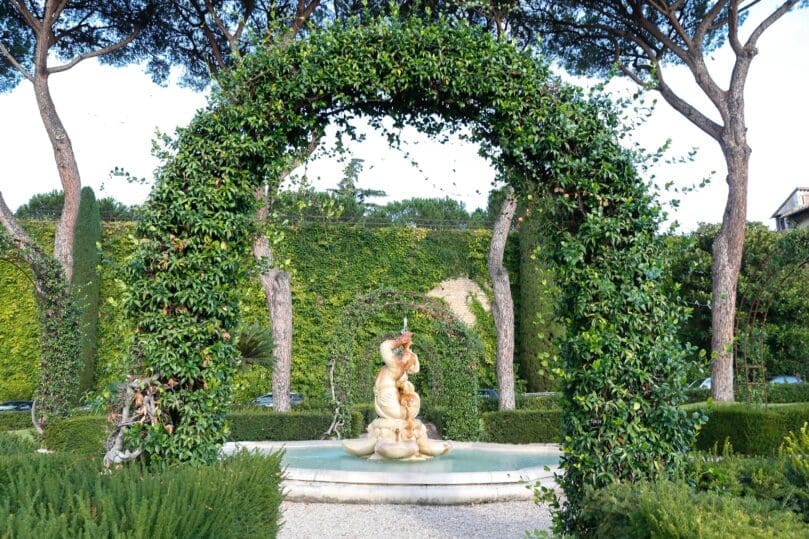 CNS photo/Lola Gomez
CNS photo/Lola GomezAtlanta
Taking care of creation
By BERNADETTE NARO , Special to the Bulletin | Published November 2, 2023
I can vividly picture the scene in my first-grade classroom when I first learned about climate change. My teacher stood at the board explaining humans’ destructive impact on the earth and issuing a warning: unless we repaired our relationship with the planet there would be dangerous consequences. I went home that afternoon in tears, deeply worried that the end of the world was impending. My mom comforted me, reassuring me that the effects were far off in the future.
Now, almost 30 years later, what once seemed like a faraway problem has arrived at our doorstep. Everywhere we look, unprecedented weather events and natural disasters remind us that climate catastrophe is here, and it is not going away. We can no longer ignore this reality when wildfires, flooding, melting ice, excessive heat, polluted air, crop-ruining droughts and rising ocean tides are daily occurrences spurned by our posture of domination towards the planet. Relatedly, we cannot deny the effects of the climate crisis on our brothers and sisters; climate related death, displacement and mass migration disproportionately affect the poorest people across the globe.
Today as the mother of two small children, I wrestle with how to respond when my children ask about climate change. How can I address the climate crisis in a way that is both honest and necessarily serious, but that is not simply anxiety producing. These are not just questions of my role as a parent but are related to my larger responsibility as a human and intersect with my calling as a Catholic.
One of the blessings of Catholicism is that we never have to navigate our questions in isolation. Discerning how to approach the climate crisis is no different. From the infancy of his papacy, Pope Francis has consistently, and urgently, called for care for creation to be a primary component of our faith. In his encyclical Laudato Si’ he repeatedly invokes people of faith to resist systems of domination and exploitation, and now the faithful have his second environmental exhortation, Laudate Deum, which was released on Oct. 4, the Feast of St. Francis, of Assisi, capping off the Season of Creation.
Pope Francis’ approach is worthy of our attention. Rather than situating the call as an obligation, or galvanizing through guilt and shame, Pope Francis invites us into a deeper relationship with the earth. He encourages us to recognize ourselves as interconnected to all created things and implores us to act as a part of creation, as opposed to lording over it.
If we follow his lead, we will recognize that our future is interconnected with the rest of creation and that care for creation is also care for ourselves. It is noteworthy that Pope Francis places a deep sense of reverence for the beauty of creation at the core of his argument. He essentially argues that we should love the earth so much, we cannot help but want to protect it.
So, what are we to do? First, we can try to spend time in nature daily, and to cultivate awe for creation. This doesn’t have to be complicated. It can be as simple as putting down our phone and looking up at the sky; simply practice paying attention to the world around us. I suspect that the more we do this the more we will recognize our position within creation, as opposed to separate from it, or above it.
Second, we can make changes in our life to be more eco-friendly. It can start small: maybe commit to trying a plant-based diet, or to composting food scraps. Perhaps we can drive less, buy used items, or limit single-use plastics.
Finally, while personal participation matters, any changes we make are only a drop in the bucket compared to the systemic changes that are really needed to address the climate crisis. The same way that we address our personal sins, but also recognize social sin, our approach has to be one that examines our own actions within the context of the systems we are part of.
In my next column, I will examine the ways we participate in oppressive systems of domination and share suggestions for how to resist them.
Bernadette Naro is program coordinator for formation communities at Candler School of Theology at Emory University. Read Laudate Deum at https://www.vatican.va under “Apostolic Exhortations.”